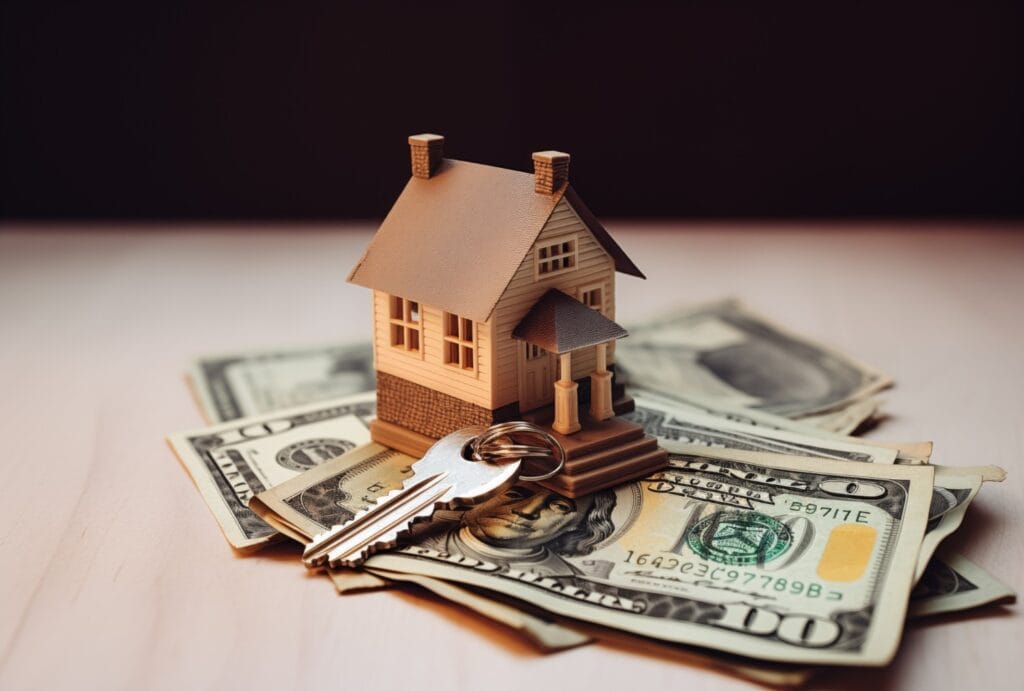Flipping houses can be an excellent way to make a profit in the real estate industry. As a beginner, knowing the right steps, strategies, and mistakes to avoid can set you on the right path for success. This guide on how to flip houses for profit will walk you through every aspect, from choosing the right property to successfully selling it, ensuring you’re well-prepared to navigate the real estate market and make profitable decisions.
Understanding the Basics of How to Flip Houses for Profit
House flipping involves buying a property at a lower price, renovating it, and then selling it at a higher price. The key to profiting from house flipping is purchasing homes that are undervalued and making strategic renovations that increase their value significantly. By understanding the process of flipping houses for profit, investors can maximize their returns and navigate the real estate market effectively.
Why House Flipping is Profitable
For beginners, flipping houses presents an opportunity to earn significant returns on investment. When done correctly, house flipping allows you to quickly turn a property into profit by improving its market value and selling it in a relatively short time. The return can be substantial compared to the initial investment.
Researching the Real Estate Market
Before buying a property, it’s essential to research the real estate market. Understanding which neighborhoods are on the rise or have potential growth is key in both residential and commercial real estate. Look for areas where housing demand is high, and property values are increasing.
Key Points:
- Analyze housing trends in specific locations.
- Study market cycles to understand when it’s best to buy and sell.
- Identify emerging areas with potential growth in property value.
Finding the Right Property to Flip
 The success of your house flip starts with choosing the right property. You’ll want to target homes that need minimal renovations but have the potential to sell for significantly more once those renovations are complete.
The success of your house flip starts with choosing the right property. You’ll want to target homes that need minimal renovations but have the potential to sell for significantly more once those renovations are complete.
Look for the following when searching for a property:
- Properties priced below market value
- Homes that need cosmetic repairs, rather than structural issues
- Location in a desirable or up-and-coming neighborhood
Financing Your House Flip
House flipping requires capital, and as a beginner, you might need to explore different financing options. The most common ways to finance a house flip include home equity loans which can be an option for tapping into your existing property value.
- Traditional Mortgage: This can be a suitable option if you have strong credit and can meet down payment requirements. It’s important to consider mortgage insurance in this process.
- Hard Money Loans: These are short-term, high-interest loans typically used by house flippers.
- Private Investors: If you know someone willing to invest in your project, this can provide flexible funding.
Creating a Budget for Your Flip
Budgeting is one of the most crucial aspects of flipping houses. Create a realistic budget that includes not only the purchase price and renovation costs but also unforeseen expenses, carrying costs, and the selling process.
Elements to include in your budget:
- Purchase price of the home
- Renovation costs (labor, materials, permits)
- Carrying costs (mortgage, insurance, utilities)
- Marketing and selling costs
Renovating the Property: What to Focus On
Not all renovations are created equal when it comes to increasing the resale value of a home. As a beginner, focus on high-impact, cost-effective improvements.
Renovations to prioritize:
- Kitchen and Bathroom Upgrades: These rooms add the most value to a home.
- Curb Appeal: First impressions matter; simple fixes like landscaping and fresh paint can make a huge difference.
- Cosmetic Fixes: Fresh paint, new flooring, and updated fixtures can enhance a home’s overall appeal without breaking the bank.
Working with Contractors and Real Estate Agents
Assembling the right team is crucial to the success of your house flip. You’ll need reliable contractors to handle renovations and real estate agents to help with buying and selling the property.
Tips for working with professionals:
- Request estimates from several contractors to evaluate their pricing and projects timelines.
- Select a real estate agent who specializes in investment properties.
- Maintain clear communication with your team to avoid delays and misunderstandings.
Marketing and Selling Your Flipped Property
It’s time to sell the property after your renovations are finished. Effective marketing is essential to attract buyers and sell the house quickly at the right price.
Strategies for selling your house:
- Use professional staging to highlight the home’s best features.
- Price the house competitively based on market research.
- Utilize online platforms to reach a broader audience of potential buyers.
Common Pitfalls to Avoid as a Beginner
House flipping comes with its own set of challenges, and it’s important to be aware of common mistakes that can erode your profits.
Pitfalls to avoid:
- Overestimating Profit: Ensure your estimated profit margin is realistic.
- Underestimating Costs: Always account for unexpected repair costs and carrying expenses.
- Rushing the Process: Take the time to thoroughly research, budget, and plan each step of the flip.
Scaling Your House Flipping Business
Once you’ve completed your first successful flip, you might be interested in scaling your house flipping business. This can involve flipping multiple properties simultaneously or working on more substantial projects.
How to scale:
- Use profits from your first flip to finance future projects.
- Build a reliable team to help manage multiple properties at once.
- Continue to research and stay up to date on market trends to identify new opportunities.
Conclusion: Getting Started with House Flipping
Flipping houses can be a profitable venture if you’re prepared, knowledgeable, and strategic about your investments. By understanding the market, choosing the right property, budgeting wisely, and making smart renovation decisions, beginners can successfully navigate their first flip and build a sustainable flip that house business focused on how to flip houses for profit.







